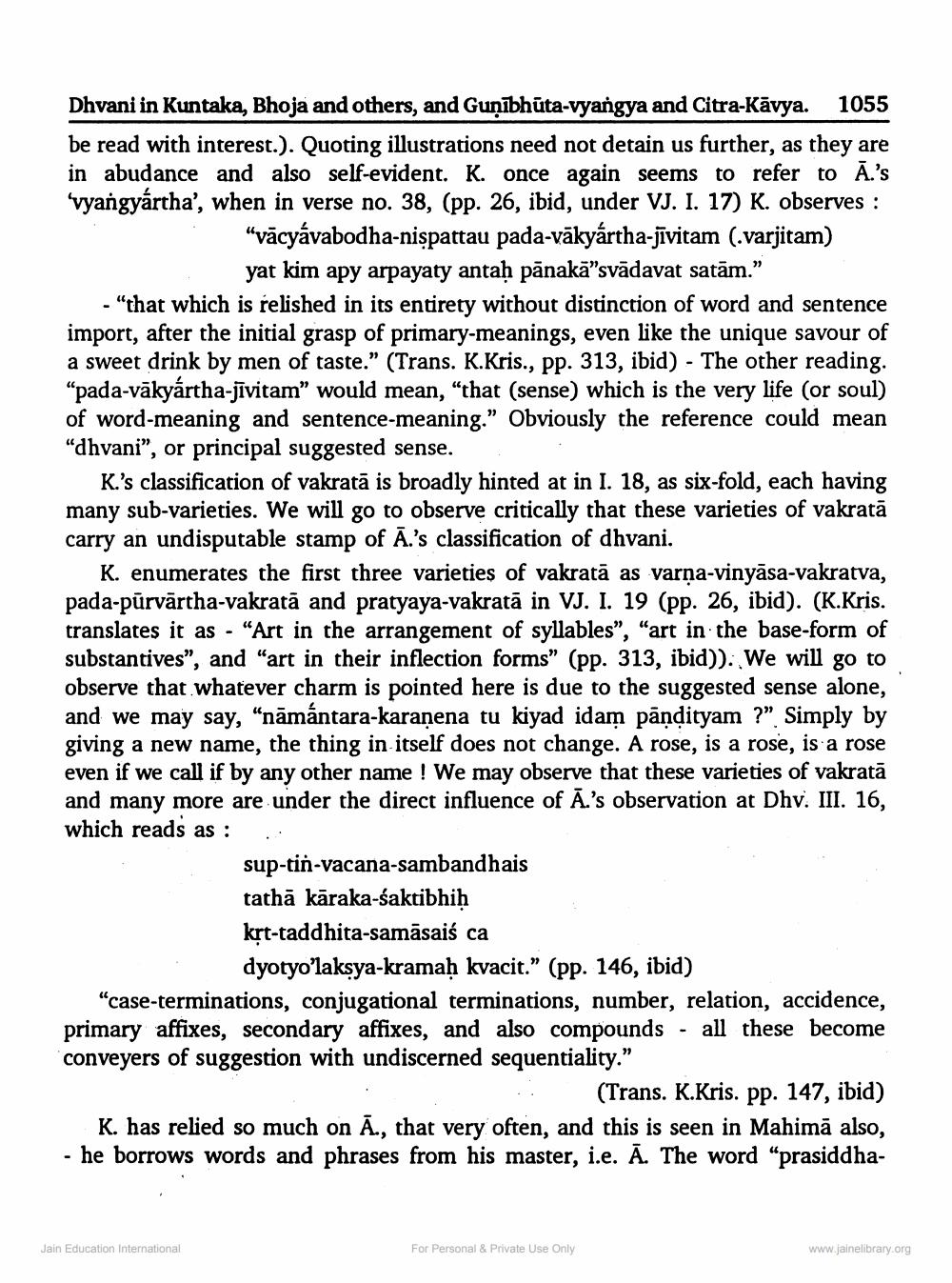________________
Dhvani in Kuntaka, Bhoja and others, and Guṇībhūta-vyangya and Citra-Kāvya.
1055
be read with interest.). Quoting illustrations need not detain us further, as they are in abudance and also self-evident. K. once again seems to refer to A.'s 'vyangyártha', when in verse no. 38, (pp. 26, ibid, under VJ. I. 17) K. observes : "vacyávabodha-nispattau pada-väkyártha-jīvitam (.varjitam)
yat kim apy arpayaty antaḥ pānakā"svādavat satām."
- "that which is relished in its entirety without distinction of word and sentence import, after the initial grasp of primary-meanings, even like the unique savour of a sweet drink by men of taste." (Trans. K.Kris., pp. 313, ibid) - The other reading. "pada-vākyártha-jivitam" would mean, "that (sense) which is the very life (or soul) of word-meaning and sentence-meaning." Obviously the reference could mean "dhvani", or principal suggested sense.
K.'s classification of vakrata is broadly hinted at in I. 18, as six-fold, each having many sub-varieties. We will go to observe critically that these varieties of vakratā carry an undisputable stamp of A.'s classification of dhvani.
K. enumerates the first three varieties of vakratā as varṇa-vinyāsa-vakratva, pada-pūrvārtha-vakratā and pratyaya-vakratā in VJ. I. 19 (pp. 26, ibid). (K.Kris. translates it as - "Art in the arrangement of syllables", "art in the base-form of substantives", and "art in their inflection forms" (pp. 313, ibid)). We will go to observe that whatever charm is pointed here is due to the suggested sense alone, and we may say, "namántara-karanena tu kiyad idam pandityam ?" Simply by giving a new name, the thing in itself does not change. A rose, is a rose, is a rose even if we call if by any other name! We may observe that these varieties of vakratā and many more are under the direct influence of A.'s observation at Dhv. III. 16, which reads as :
sup-tin-vacana-sambandhais tathā kāraka-saktibhiḥ kṛt-taddhita-samāsaiś ca
dyotyo'laksya-kramaḥ kvacit." (pp. 146, ibid)
"case-terminations, conjugational terminations, number, relation, accidence, primary affixes, secondary affixes, and also compounds conveyers of suggestion with undiscerned sequentiality."
all these become
(Trans. K.Kris. pp. 147, ibid)
K. has relied so much on A., that very often, and this is seen in Mahima also, - he borrows words and phrases from his master, i.e. A. The word "prasiddha
Jain Education International
-
For Personal & Private Use Only
www.jainelibrary.org




